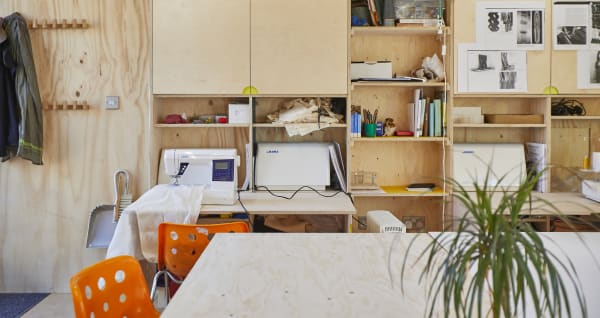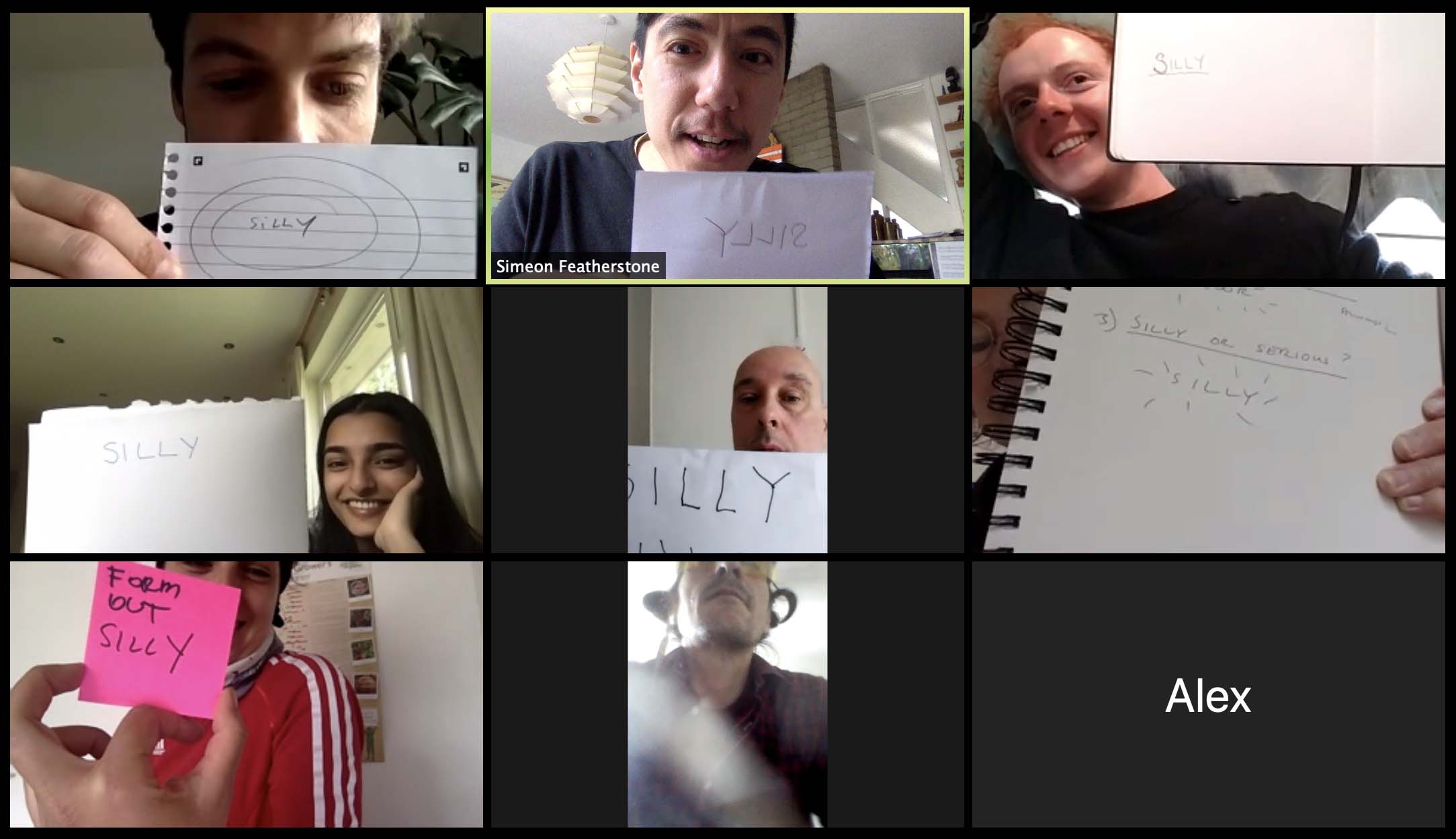
MAKE Socials

- Written byRosa Morcom
- Published date 01 February 2021

In a national lockdown, can a making space exist online and help tackle social isolation?
When the MAKE @ Story Garden site closed due to the UK’s first coronavirus lockdown, Technical Coordinators Simeon Featherstone and Mark Laban took activities online. MAKE Socials translated the participatory making that normally happened on site into digital, week-long creative challenges that primarily encouraged members to socialise and create together within a community of practice.
To kick off each week, the group discussed life under lockdown, pets, family and art to help develop a collective mindset. This conversation informed a creative task that was beneficial to the participants, taking into account their state of mind and capacity for social connection each week. Once a brief was set, the group turned their attention to tools and materials available to everyone in the group – this helped to decide the best outputs and any making methods that could be used.
At a mid-way point each week, facilitators would hold a group tutorial to discuss how things were going and to demonstrate any making techniques that might be required. These tutorials ranged from skills-sharing exercises to sessions delivered by guest makers. What developed was an inclusive, peer-to-peer process. This was made more profound by the introduction of participants from Healthy Minds in Camden, a local mental health charity, who brought renewed energy and humour to the latter sessions.
Results were not just physical. While challenges were often focused on creating objects, they also provided the opportunity for shared experiences and reflection on tackling feelings of loneliness during the coronavirus pandemic.
"When I first came I didn’t know what to expect, but I liked it so much that I’ve asked to receive the link to the event every time."
Participant
Make a hat
This week, after discussions about swans, milliners and heritage, the facilitators set a playful task for the week: make a hat to express yourself. All participants were asked to work with paper. Some even attempted more ambitious fascinators and ten-gallon styles.
Bring the outside in
Participants discussed ikebana, the Japanese art of flower arranging, and how the natural world can be used to decorate the home. They also discussed camera obscuras and how to change your home into a pinhole camera. To end the week, participants meditated in a live ritual which connected them back to nature.
Make a playful solution for a practical problem
In the fourth week, participants were asked to find a playful solution to a practical problem. It arose from discussion around play and how children use spaces and objects when they are in charge. It asked how adults can learn through observation by seeing different people at play.
More:
-

Paul Cochrane, MAKE workshop. Photo: Paul Cochrane.


